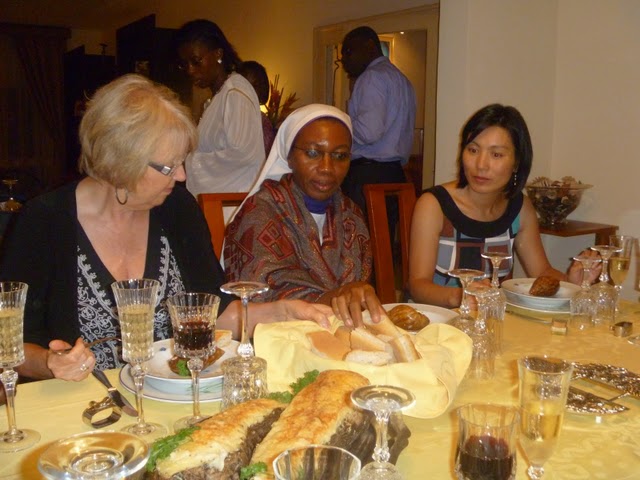Ibasho’s intention is to assist the local partner in the Ivory Coast to create a socially integrated and sustainable community that value their elders. To achieve this goal, we need to constantly challenge series of socially constructed notions regarding how elders should live in institutional settings, and bring back our common sense to create their community where they can find their own place to feel oneself. This effort sounds rather easy, but it is actually quite a challenging task to do.
When we were in Ivory Coast, a very kind person reviewed our schematic drawing and pointed out that “the church at the end of the street can be too far for elders to walk up to. We should consider building the church in the middle of the street, or even add a small chapel at the place where elders have the shortest walking distance.” His idea was completely different from how we designed our plan in order to enhance normalized socialization. We intentionally placed the church at the end of the street so that people who would attend church services have to walk through in front of elder’s houses. Moreover, someone has to help elders to get to the church if some elders need assistance. This is how we would like to generate normalized social interactions among elders and people from surrounding communities.
When I heard the comment from him, I realized that:
His suggestion is right if we would like to give the best convenience for elders to get to the place where they would like to be regularly, however, this type of decision which is based on “protect elders” and “create the most convenient and efficient place for elders” might lead us into the current situation of INSTITUTIONAL CARE. As my friend Ann Wyatt reminded me, we have made various decisions about how to safely care for elders based on our best intentions, because we always wanted to do the right thing for elders. However, series of “over-protective” and “over-planned” decisions, which are based on our good intentions, slowly developed the notion called “institutional care,” where nobody want to live.
That is why I would like to remind people to look at the “real communities” where we are living in, when we think about how to create a better place for elders to have a meaningful life. In our community, we constantly negotiate with people and surrounding environment to make your own place where we can feel at home and being yourself. We do not have the most efficient and convenient life in our community. We also know that no matter how hard we work, we will not be able to have a “perfect world” (there is no Utopia that worked perfectly in the past history!) The best mental status where we can reach is “to be contented,” like Buddhism teach us as a key to our happiness. These everyday challenges actually keep us being stimulated and giving us meaning to make our life better.
Someone’s good intentions may harm others’ happiness, if we are distracted by our short sighted goals without carefully think through the long term consequences.
I cannot wait for the day that “common sense becomes common” in healthcare industry…





